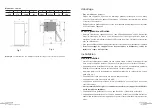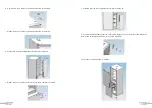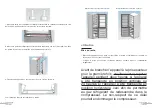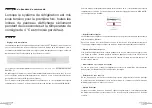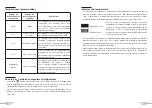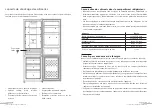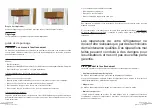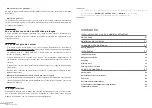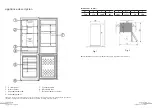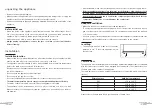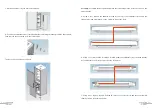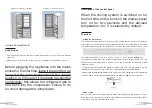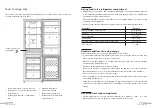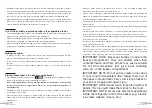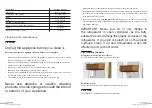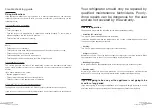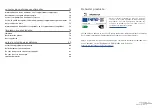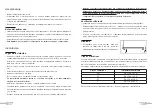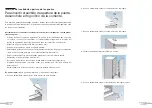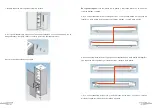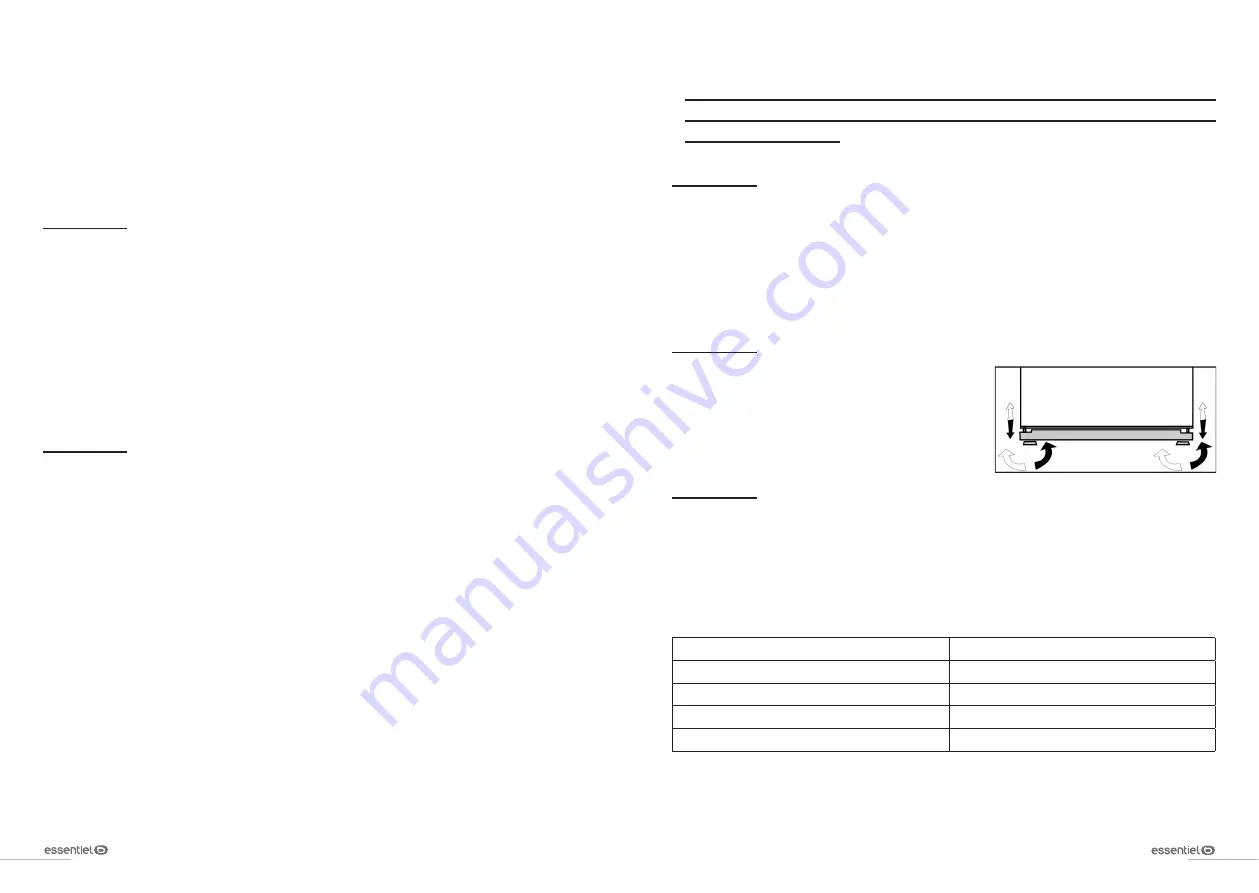
installation
installation
V.2.0
V.2.0
34
35
unpacking the appliance
•
Remove the transport packaging.
•
Make sure that the appliance has not been damaged during transport. Do not plug the
appliance into the mains if damaged! Contact your retailer instead.
•
Remove all the adhesive tape and packaging materials from the inside and outside of the
appliance.
Before initial use
•
Clean the inside of the appliance with warm water and a little white vinegar. Do not
use soap or detergents as the odour can linger. When you have finished cleaning the
appliance, dry it completely. Only wipe electrical parts with a soft cloth.
•
White spirit can be used to remove adhesive residue from the exterior.
•
Always unplug the appliance, remove the fuse or switch off the circuit breaker
before cleaning.
installation
Installation location
•
Always stand the combined refrigerator on a flat, stable surface. As your appliance will be
heavy when filled with food, it must be stood on a strong, solid floor.
•
The appliance must be installed in a dry, well-ventilated room at ambient temperature.
Refer to the table in the next section “Climate class”.
•
Never put devices that generate heat such as microwave ovens, toasters and the like on
top of the refrigerator.
•
Do not expose the appliance to direct sunlight.
•
Do not expose the appliance to rain.
•
Do not install the appliance next to radiators, cookers or other heat sources.
•
The ambient temperature affects energy consumption and appliance efficiency.
•
The mains outlet must remain accessible when the appliance is installed.
•
The appliance can be installed alone, next to a piece of furniture or in front of a wall.
Make sure there is enough space around the appliance to conveniently open the door
and drawers.
•
After installation, make sure that the appliance does not rest on its power supply cable.
•
Before plugging the appliance into the mains for the first time, allow two hours for it
to settle if it has been transported in the upright position, or 24 hours if it has been
transported horizontally; this is to allow the refrigerant gas to flow back into the
compressor. Failure to do so could damage the compressor.
Adequate ventilation
•
Make sure that air can circulate freely around the appliance.
•
To ensure that your appliance works properly, do not obstruct the air vents and leave a
gap of at least 20 cm above the appliance, 10 cm between the back and the wall and
2 cm on either side.
•
If you are going to install your appliance next to another refrigerator or freezer, make sure
they are not stuck together as this could cause condensation on the outside.
Levelling
•
The appliance must be made level to prevent
vibration in use. To level the appliance, adjust
the front feet.
Climate class
The appliance must be installed in a location with an ambient temperature that is compatible
with the climate class for which it was designed (see table below). The climate class is on
the data plate on the outside of the appliance.
The table below sets out which ambient temperatures are compatible with which climatic
classes:
Climate class
Ambient temperature
SN
+10 to +32°C
N
+16 to +32°C
ST
+16 to +38°C
T
+16 to +43°C
Please refer to the data plate to find your appliance’s climate class.

